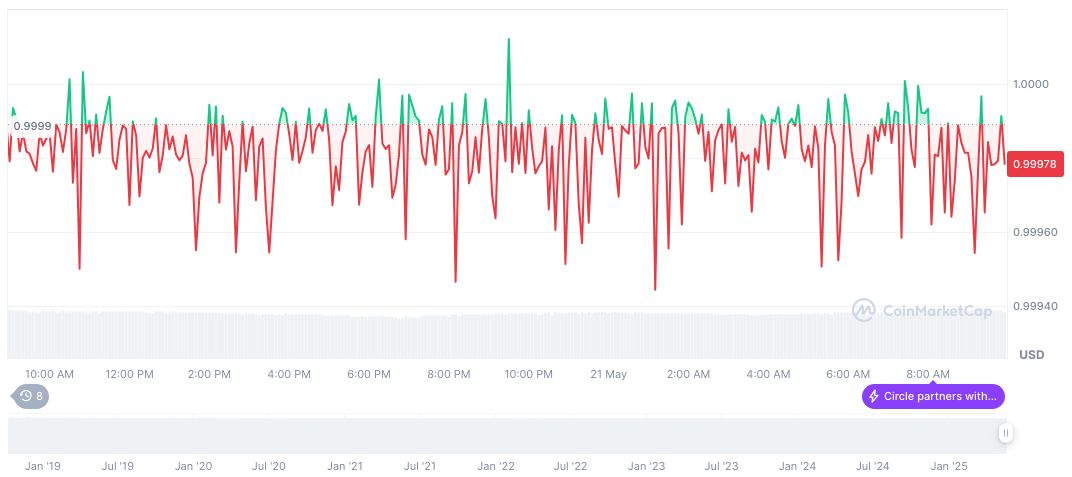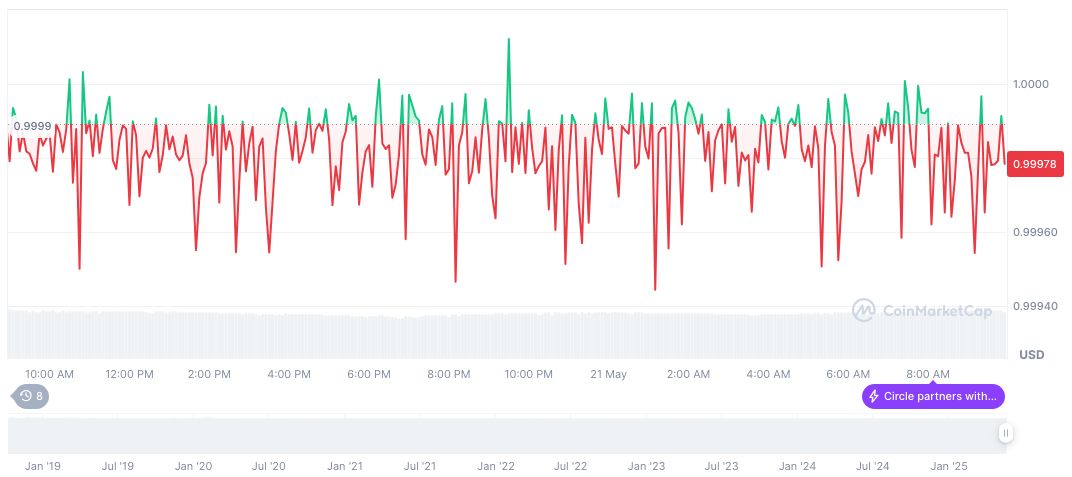- GENIUS Act initiated stablecoin regulation talks in U.S. Senate.
- Key players include Sen. Hagerty and President Trump.
- USD-backed stablecoin markets face potential new compliance standards.
On May 22, the U.S. Senate advanced discussions on the GENIUS Act, a pivotal move towards regulating stablecoins. The motion passed with 69 votes in favor, advancing the bill’s amendment discussions.
The act’s progression signals significant bipartisan focus and potential impacts on the digital finance landscape.
GENIUS Act: Senate Endorses Stablecoin Regulatory Framework
The GENIUS Act, sponsored by Senator Bill Hagerty, pushes stablecoin regulation into the amendment stage after a Senate procedural vote. This marks a decision to legislate formal oversight on stablecoin issuance and compliance. The bill’s introduction follows previous procedural approval at 66 votes, underscoring increasing legislative focus on cryptocurrency regulation.
The GENIUS Act’s advancement suggests changing compliance landscapes for USD-backed stablecoins, impacting major public blockchain liquidity flows. Institutions may face new challenges to align with potential federal regulatory requirements. This precedent indicates readiness to establish standards within the crypto industry’s growing sectors.
Community reactions reveal mixed sentiments, with some legislators like Sen. Elizabeth Warren critiquing its alignment with increased profitability for certain issuers. Her statement highlights concerns about regulatory impacts on market dynamics.
“The GENIUS Act will accelerate Trump’s corruption by supercharging the size of the stablecoin market and the reach and profitability of USD1.” – Elizabeth Warren, U.S. Senator
First U.S. Federal Stablecoin Legislation Nears Consensus
Did you know? The GENIUS Act’s Senate progress highlights the first federal action aimed at establishing comprehensive stablecoin regulation in the U.S., akin to EU’s MiCA legislation, impacting stablecoin issuance globally.
As of the latest CoinMarketCap update, USDC trades at $0.99 with a market cap of $61.05 billion. The stablecoin has seen a 2.12% decrease in 24-hour price movements, aligning with broader regulatory speculation. Trading volume reached $18.38 billion, indicating high market activity despite 5.09% weekly declines.
According to insights from the research team at Coincu, potential financial shifts within stablecoin sectors could prompt recalibrations in liquidity strategies. History suggests regulations may influence traditional banks and fintech alignment, fostering innovation within USD-pegged assets. These actions may reshape the broader financial ecosystem, emphasizing federal engagement in digital asset regulation.
Source: https://coincu.com/339067-senate-stablecoin-regulation-genius-act/

